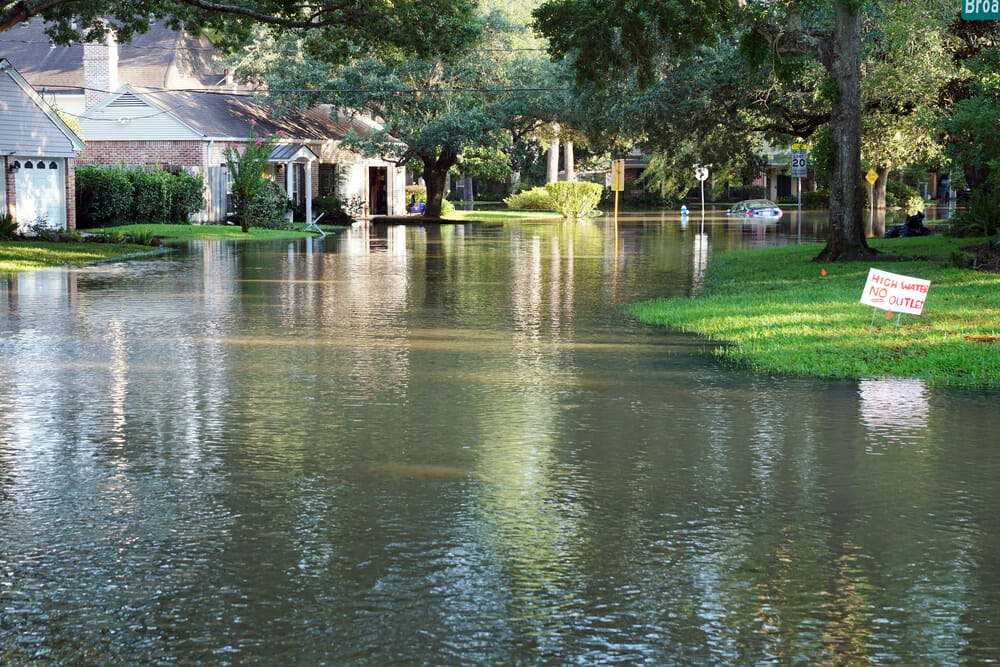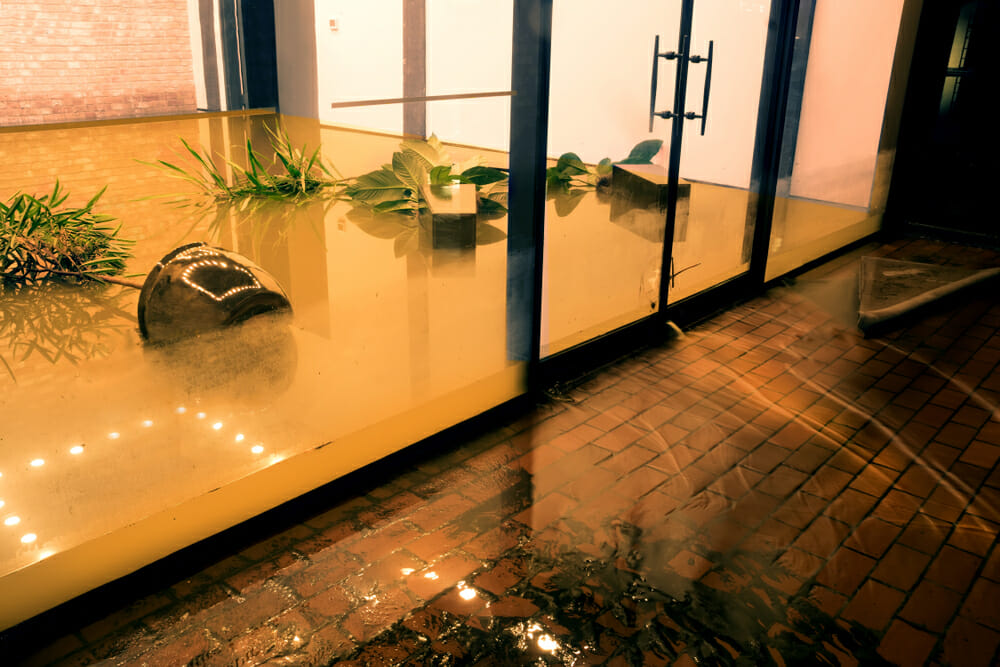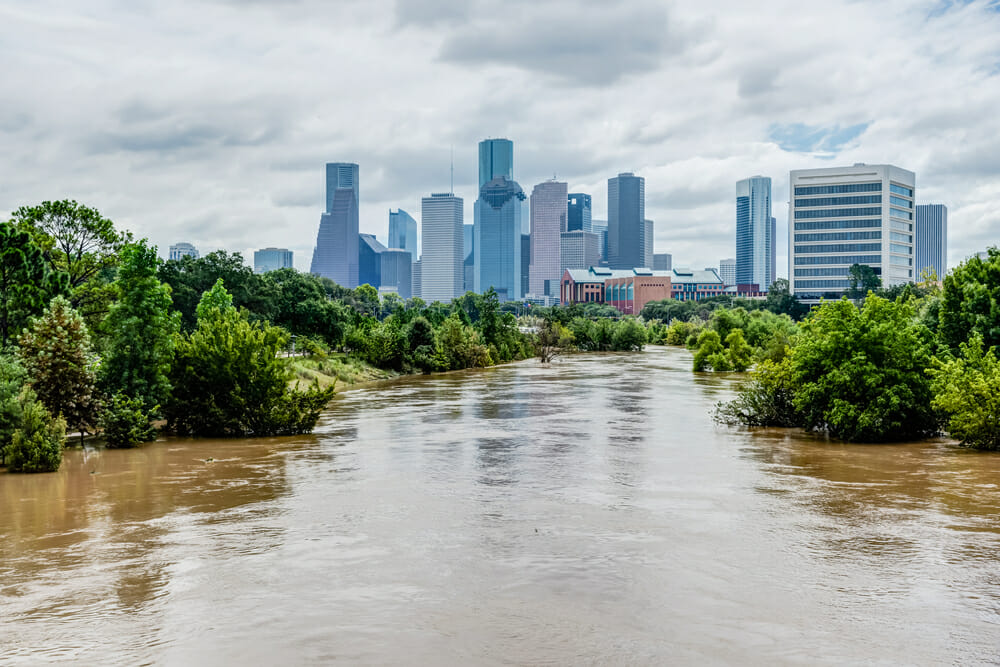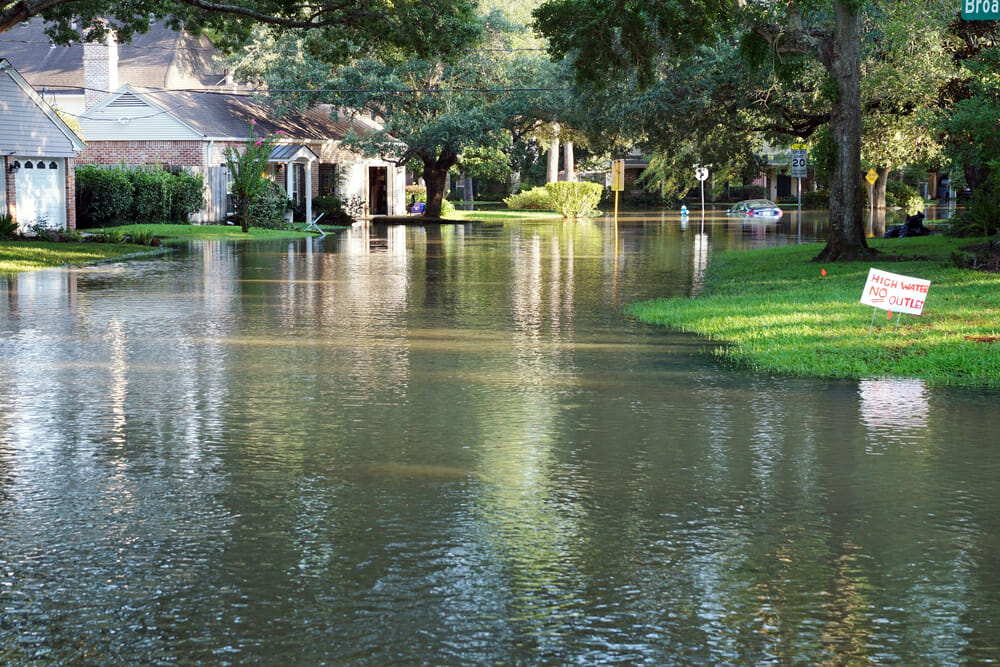We settle all kinds of property damage claims

FLOOD & WATER LOSS
Trust ICRS public adjusters to settle your flood & water damage insurance claim
When flood & water has devastated your life, calling a public adjuster about filing a flood & water claim can help you put the pieces back together
- Commercial Property Flood & Water Claims
- Multi-Family Property Flood & Water Claims
- High-Value Homes & Estate Flood & Water Claims
Public Adjuster for Flood & Water Claims
Water and Flood damage claims: what do I do first?
Once a water loss has occurred, the single most important thing you need to do is begin proper emergency mitigation. Removal and drying out should begin immediately. Consider employing an experienced public adjuster to guide you through this process. How a water loss is handled in the first 24 hours can be critical in the outcome of your property damage claim.
For example, we often see insurance company adjusters interested in saving money for the carrier, neglecting to remove baseboards and other finishes. This prevents air from circulating throughout a building’s wall system. Wet carpet needs to be pulled in total, or you may be harboring conditions that could lead to further damage or mold.
Sticking a blower in an up-lifted carpet corner will not get the job done as the padding is often soaked and needs to be replaced. It is commonly known that mold can grow in 72 hours. Whether you’re dealing with a fire, flood, hurricane, pipe burst, or another type of water damage, time is of the essence.
Water damage insurance claims – Properly drying out a structure, removing and replacing material that has water damage from a flood, hurricane, tornado, or fire can be complex, time-consuming, and frustrating. Navigating policy language, industry protocols, avoiding mold growth, and being properly indemnified for the loss of use requires a professional you can trust.
- Commercial Business Owner Flood Insurance Policies covered under the National Flood Insurance Program (NFIP) limit currently $500,000 for the building and $500,000 for the building contents. These are typically purchased separately with separate deductibles.
- Homeowner Owner Flood Insurance Policies covered under the National Flood Insurance Program (NFIP) limit currently $250,000 for the building and $100,000 for the building contents . These are typically purchased separately with separate deductibles.
STEP 1: Notify Your Insurer To Start Claims Process
- After experiencing water damage, contact your agent or insurance company to file a water damage claim. Ensure you have an insurance company policy in hand or request a copy of it from your agent.
- A telephone and/or email address where you can be reached at all times in writing via email or fax.
- Any pre-loss photos of your damaged property will be useful in proving your claim
STEP 2: Document The Damage
- Separate damaged from undamaged property. Your adjuster will need evidence of the damage to your property and possessions to prepare your repair estimate.
- Take photographs of all of the damaged property, including discarded objects, structural damage, and standing floodwater levels.
- Make a list of damaged or lost items and include their date of purchase, value, and receipts, if possible.
- Officials may require disposal of damaged items so, if possible, place flooded items outside of the home.
STEP 3: Complete A Proof Of Loss To Support Your Claim
- Your property damage attorney can assist you in preparing a Proof of Loss (which is your sworn statement of the amount you are claiming, including necessary supporting documentation) for your official claim for damages. A Proof of Loss can be many things but must contain the details outlined in the Homeowner, Commercial or Standard Flood Insurance Policy. You’ll typically need to file your Proof of Loss with your insurance company within 60 days of the loss. This document substantiates the insurance claim and is typically required before the National Flood Insurance Program (NFIP) or insurance company will make a payment.
- You’ll receive your claim payment after you and the insurer agree on the number of damages, and the insurer has your complete, accurate, and signed Proof of Loss. If major catastrophic flooding occurs, it may take longer to process claims and make payments because of the sheer number of claims submitted.

We will recover the maximum amount for your flood or water damage insurance claim.
ICRS settled over $10,000,000 in Texas flood claims.
Other tips
- All water restoration technicians need to be IICRC (Institute of Inspection, Cleaning and Restoration Certification) certified and follow the guidelines provided by the IICRC.
- Typically, your insurance company will cover the ensuing damage but sometimes, not the cause of the loss. This applies for most plumbing fixtures, including water heaters, dishwashers, washing machines, and sprinkler systems. The bad news is that typically insurance policies do not provide coverage to the damaged pipe themselves and the owner may be responsible to pay for the plumber costs associated with the repair or replacement of a broken pipe.
- Most states have consumer insurance codes that protect you, the insured policyholder, from unnecessary delays, underpayments and denial of policy benefits.
- We exclusively represent the interests of policyholders. Our team will document your damages, interpret your policy, handle all the inspections, paperwork, negotiations, code compliance and hold your insurance company accountable ensure they pays you timely, accurately and to the full legal value of your policy.
3 Categories of water
- Clean Water – Some examples of this are a pipe break within the wall or a supply line to a plumbing source. During an attic mounted water heater failure, while clean water is released, it is running through dirty insulation and often times attics prior to its final destination. There are times when clean water losses may become grey water losses.
Grey Water – Some examples of this are overflows from your washing machine, toilet overflow or tub overflow. A washing machine, though clean water, is considered grey because of the organic matter contained inside of it, which can include hair follicles, skin cells, and even fecal matter. - Black Water – Some examples of this are sewage backup, and surface water flooding. Often times, there are special limits to the amount of coverage provided for sewage backup and no coverage for flood (flood will be insured through the National Flood Insurance Program and in rare cases attached as a rider through your mortgage company). In the event black water damages are not mitigated immediately and properly, mold damage is inevitable.
4 Classes of water damage
A moderate amount of water discharge, which is found in reasonable amount of time, can be cleaned and mitigated with limited to no building material removal outside of flooring.
This level will affect an entire room or multiple rooms and building material is being affected.
This is a large amount of water and will affect ceilings, walls, insulation and flooring.
This is labeled as a specialty situation with an unmaintainable amount of water intrusion and has had time to saturate into the materials such as hardwoods, brick and stone.
Precautions to prevent freezing pipes:
- Clean your gutters so melting snow and ice can flow freely.
- Turn on your faucets and allow them to drip slowly. Moving water will prevent freezing.
- Heat your house to a minimum of 65 degrees in the winter.
- Open cabinet doors below sinks. It will help allow warm air to circulate.
- Drain your water system if you’re away for an extended time.
- Disconnect all gardening hoses and install covers on all outside faucets.
- Identify the location of the main water valve and the valve on your water heater. (Learning the location of these valves may come in handy during an emergency.)
- Wrap pipes nearest exterior walls and in crawl spaces with pipe insulation or with heating tape. This can prevent freezing, especially for interior pipes that run along outside walls.
- Close all windows near water pipes; cover or close open-air vents. Freezing temperatures combined with wind drafts can cause pipes to freeze more frequently.
- Heat your basement and consider weather sealing your windows.
- Insulate outside walls and unheated areas of your home.
- If you plan to be away from home for an extended period of time, shut off water supply valves to your washing machine.
Monitor freezing pipe conditions
- Allow a faucet to drip slightly (lukewarm water) in order to minimize freezing.
- The first sign of freezing is reduced water flow from a faucet.
- Check your faucets for water flow and pressure before you go to sleep and again when you wake up.
- Check pipes around your water meter, in unheated areas, near exterior walls and in crawl spaces. These tend to be vulnerable to freezing conditions.
- Identify cold air drafts coming in from a flue or chimney chase and caulk gaps that are near pipes.
If a pipe freezes
- If a faucet or pipe inside your house freezes, you can thaw it using a good hair dryer. (For safety purposes, avoid operating a hair dryer around standing water.)
- To thaw a frozen pipe, heat water on the stove, soak towels in the hot water and wrap them around cold sections of the pipes.
- When thawing a pipe, start thawing it nearest to the faucet. Make sure the faucet is turned on so that melted water can drip out.
If a pipe bursts
- Shut off water at the main valve.
- If the break is in a hot water pipe, the valve on top of the water heater should be closed.
- Call a plumber. Keep an emergency number nearby for quick access.



Years Experience
Claims Settled
Hours Worked
Average Claim Amount
Risk-Free Loss Recovery Offer
Get a complimentary consultation on your commercial or multifamily flood & water damage insurance claim. We are flood & water claim adjusters who work for policyholders, not the insurance company. If you choose to hire us, we work on contingency. No recovery, no fee. Our flood & water insurance claim process is proven and streamlined. We also value your privacy. We do not sell, trade, or rent your personal information to others.
Need immediate flood & water damage insurance claim help?
TESTIMONIALS
What Client Says About ICRS
It pays to know ICRS – “747% Higher Payments with a Public Adjuster for Claims related to a 2005 Hurricane”
Frequently Asked Questions
What is a public adjuster and what do they do?
When should I hire a public adjuster?
How are public adjusters compensated?
How do public adjusters differ from insurance company adjusters?
Do I need a public adjuster if I already have an insurance agent or broker?






